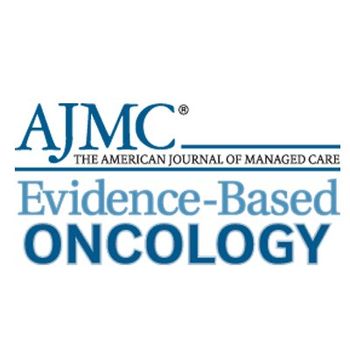
Breast Cancer
Latest News

Latest Videos

CME Content
More News

A study from investigators at Fox Chase Cancer Center sought comparative outcomes data on adverse reactions from COVID-19 vaccination among patients with a history of cancer and those undergoing treatment and found equivalent safety outcomes.

Although cardiovascular disease risk is well established in survivors of breast cancer, how cardiotoxicity from treatment influences development of cardiometabolic risk factors is not.

Interim data from a National Cancer Institute Center for Cancer Research study show demonstrated immune reactions in patients with breast cancer following immunotherapy with their own tumor-infiltrating lymphocytes (TIL).

This new analysis among patients with stage I to III breast cancer investigated outcomes in connection with 5 care delivery variables: stage I at diagnosis, chemotherapy receipt, radiation therapy receipt, endocrine therapy initiation, and endocrine therapy continuation.

Given the heterogeneous nature of breast cancer, biomarkers evaluated throughout treatment help provide a clearer picture of the treatment paradigm.

A recent report from the CDC details varying incidences of breast cancer among women by demographic characteristics and suggests areas for improvement in treatment and patient education on risk.

Two doses of the Moderna COVID-19 vaccine have reduced efficacy against the Omicron variant; a federal appeals court reinstates the Biden administration’s health care worker vaccine mandate in 26 states; a new combination therapy may reduce breast cancer progression.

Recent surveys shed light on oncologist and patient perceptions of the switch to biosimilars and patient mental health.

Costs of extending human epidermal growth factor receptor 2 (HER2) therapy for patients with metastatic breast cancer were estimated in a retrospective study.

Funmi Olopade, MD, FACP, professor of medicine and human genetics and founding director of the Center for Clinical Cancer Genetics and Global Health at the University of Chicago Medical Center, previews her keynote address for the San Antonio Breast Cancer Symposium (SABCS).

Collaboration with community partners recognized for patient care excellence.

The WISDOM study—Women Informed to Screen Depending On Measures of risk—was launched to test a personalized approach to screening compared to annual mammograms. Funmi Olopade, MD, FACP, is a professor of Medicine and Human Genetics and founding director of the Center for Clinical Cancer Genetics and Global Health at the University of Chicago Medical Center, and a co-investigator of WISDOM. She is an expert on understanding the etiology and genomic basis of cancer progression in diverse populations and has published extensively on both genetic and non-genetic risk factors for breast cancer. She discussed overcoming early challenges of low enrollment of Black women in the study.

The Pfizer and Moderna COVID-19 vaccines were shown to be 90% effective in preventing infection in a real-world setting; Biden administration urges states to pause reopening plans amid signs of COVID-19 surge; a lawsuit seeks to end the requirement that preventive services be provided free of charge to Americans.

The FDA issues updated guidance on the emergency use authorization (EUA) process for COVID-19 screening tools; Eli Lilly releases patient-reported outcome results for Verzenio (abemaciclib) in breast cancer; COVID-19 vaccines possibly improve long-haul symptoms among patients.

The study, presented at the 2020 San Antonio Breast Cancer Symposium, also found that time to first treatment dropped during this period of the coronavirus disease 2019 (COVID-19) pandemic.

A targeted cue-to-action campaign of outreach, education, and incentive can improve uptake of screening mammography.

Severe mental illnesses that precede a breast cancer diagnosis may increase the risk of both all-cause and cancer-specific mortality among women with Medicaid coverage.

Alexey Aleshin, MD, senior medical director of Oncology at biotech giant Natera, said that attention on finding biomarkers for metastatic reoccurrence needs to be directed at women with a high risk of this happening.

A more aggressive tumor microenvironment may be to blame for the exaggerated inflammatory response more often seen in Black women with breast cancer compared with White women.

Changes in circulating tumor DNA (ctDNA) are indicative of treatment response in early-stage breast cancer, pointed out Alexey Aleshin, MD, senior medical director of Oncology at biotech giant Natera.

An abstract from last month’s San Antonio Breast Cancer Symposium identifies factors linked with longer-term controlled substance use after treatment of breast cancer with mastectomy plus breast reconstruction in women receiving opioids, benzodiazepines, and other sedative/hypnotics.

Through neoadjuvant chemotherapy we can downstage tumors, assess drug efficacy, and better segregate women by prognosis status for adjuvant treatment, explained Alexey Aleshin, MD, senior medical director of Oncology at biotech giant Natera.

We examine the incidence and impact of chemotherapy induced peripheral neuropathy on clinical and economic outcomes in women with metastatic breast cancer initiating intravenous paclitaxel/nab-paclitaxel.

Supplemental materials for article examining the incidence and impact of chemotherapy induced peripheral neuropathy on clinical and economic outcomes in women with metastatic breast cancer initiating intravenous paclitaxel/nab-paclitaxel.

This article describes treatment patterns, toxicities, and health care service utilization and costs of women with metastatic breast cancer (mBC) initiating treatment with intravenous (IV) paclitaxel or IV nab-paclitaxel.















